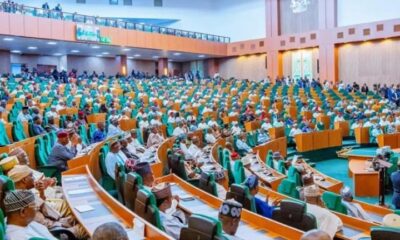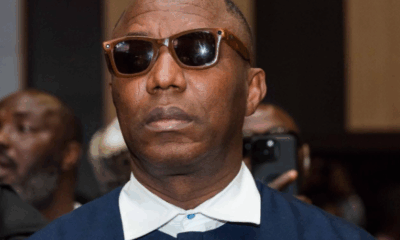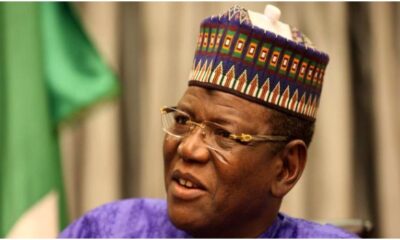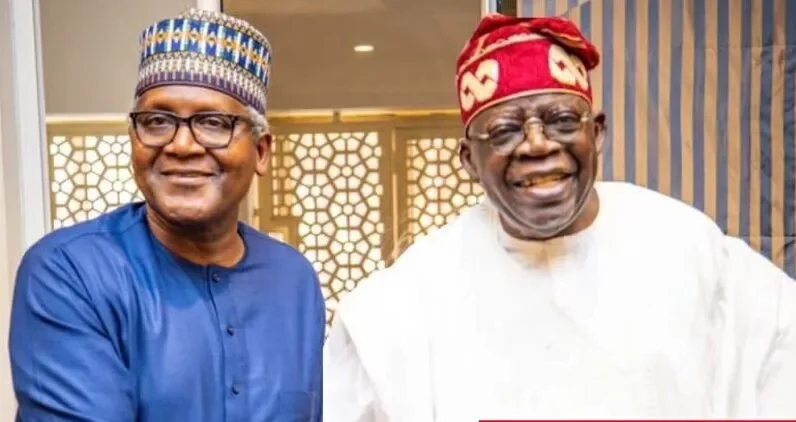Deposit Money Banks are experiencing dollar shortages after the Central Bank of Nigeria reduced their foreign exchange allocations.
According to The Punch, multiple bank officials said they have been unable to meet their customers’ forex demand for school fees, Personal Travel Allowance, among others.
A top official of a tier-1 bank said the gap between demand and supply has become worsened. We only hope the CBN will intervene and supply more forex soon.
“For some weeks now, we have not got allocation. Sometimes they delay in giving” another bank official said.
Other sources from banks also confirmed that the CBN has drastically reduced its forex allocations.
The CBN on Monday said it would introduce measures to curb the naira slide.
However, the naira gained at the parallel market on Tuesday, after the central bank said it would intervene in the continued depreciation of the local currency.
On Monday, while speaking after briefing President Bola Tinubu on what the bank was doing to halt the naira slide, the Acting Governor, CBN, Folashodun Shonubi, said the fluctuation in the parallel market was not solely driven by economic factors, but also speculative demand.
However, some Bureau de Change Operators said the naira which was earlier exchanged to the dollar at 956/$ on Monday, exchanged at 925/$ on Tuesday.
A BDC operator, Alh Alli Kareem, said, “Today, we bought and sold the naira at 915/$ and 925/$. They are saying they will pump more dollars into the economy but, we are still waiting.”
On the Investors & Exporters window, trading of the naira commenced at 785.89/$ and reached a high of 799.90/$ before closing at 774.77/$ on Tuesday; it closed at 764.68/$ on Monday.
A former President, Association of National Accountants of Nigeria, Dr Sam Nzekwe, said, the intervention announced by the CBN might be a short-term one, adding that might not be sustainable.
He said, “People don’t have confidence in naira again; when people have money, they go to the BDCs and buy the dollar and keep. The best intervention they can do is to see how they can get the economy to be productive, but now, we are importing a lot.
“If they are saying intervention, is it the dollar you have or the one you don’t have? I don’t worry that the CBN floated the naira, but it cannot defend it.”
It would be recalled that in July 2021, the CBN discontinued dollar allocation to the BDCs, but continued through the Deposit Money Banks.
Meanwhile, the Federal Government may in the coming weeks clamp down on Bureau De Change operators.
Sources close to the matter hinted to our correspondent that the operatives of the Economic and Financial Crimes Commission might go after currency speculators whose activities have been putting pressure on the local currency.
“The Federal Government is planning to clamp down on operators of Bureau De Change across the country. Although they are businessmen, they are also part of the problem due to the rate at which they greedily hike rates to make profits. The current rates are not market driven but speculative, and that is why the government said they would intervene,” the source said.
EFCC could not verify the plan as of press time.
Credit: The Punch

 BIG STORY5 days ago
BIG STORY5 days ago
 BIG STORY21 hours ago
BIG STORY21 hours ago
 BIG STORY4 days ago
BIG STORY4 days ago
 BIG STORY4 days ago
BIG STORY4 days ago
 BIG STORY5 days ago
BIG STORY5 days ago
 BIG STORY5 days ago
BIG STORY5 days ago
 BIG STORY4 days ago
BIG STORY4 days ago
 BIG STORY4 days ago
BIG STORY4 days ago























